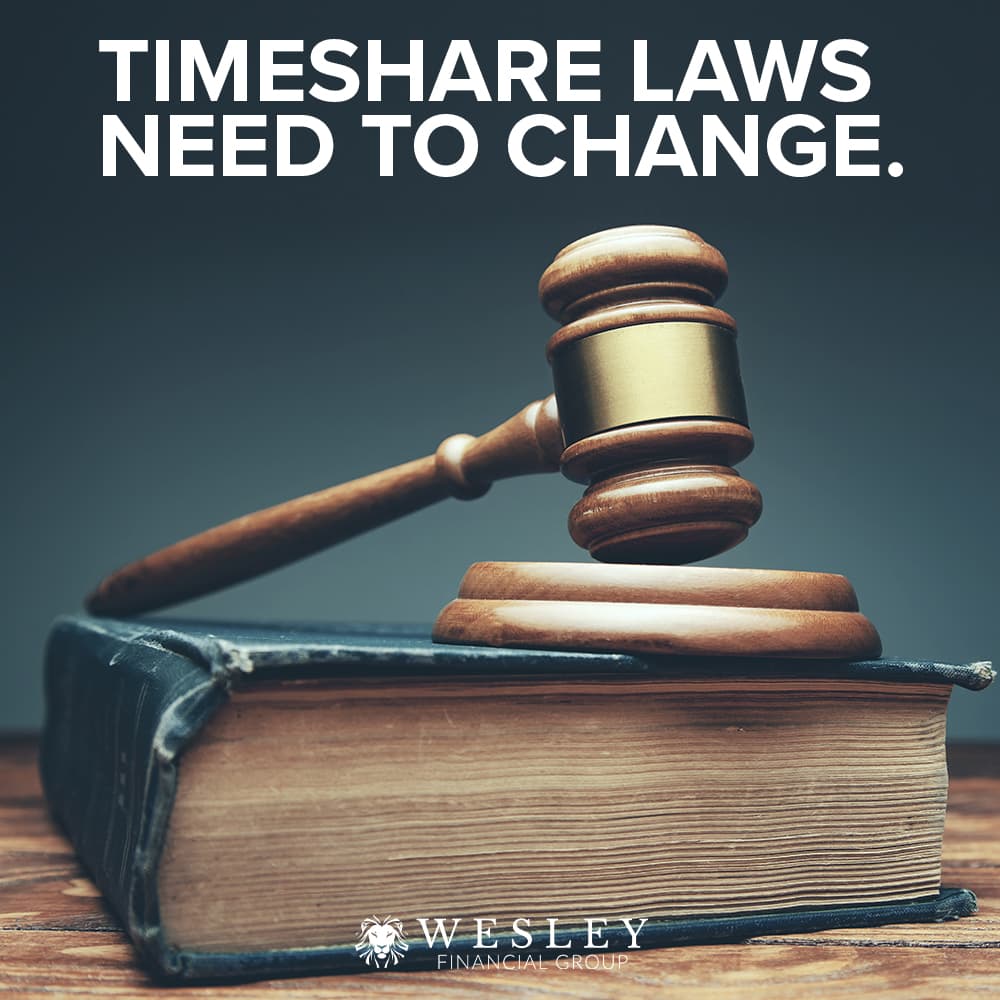Table of Contents
Understanding Massachusetts Timeshare Cancellation State Laws
*Wesley Financial Group, LLC, and its affiliates, successors, or assigns are not lawyers or a law firm and do not engage in the practice of law or provide legal advice or legal representation. All information, software, services, and comments provided on this site are for informational and self-help purposes only and not intended to substitute for professional advice, legal or otherwise. Any information provided herein is subject to change at any time.

Owning a timeshare in scenic Cape Cod might initially seem like a dream, but it can quickly become a financial burden. The complexities of canceling a timeshare agreement can feel daunting, leaving many owners searching for an escape route.
If you’re a timeshare owner in Massachusetts looking to cancel your agreement, you’re not alone. Timeshares can often turn into long-term financial commitments that are difficult to manage. This article will delve into the laws surrounding the cancellation of a timeshare in Massachusetts, explain the typical costs involved, and uncover why canceling this vacation property can be so challenging.
FREE
Timeshare Exit Info Kit
Get your free Timeshare Exit Info Kit today to learn more about Wesley Financial Group and how we may be able to help you get out of your timeshare.
Massachusetts Timeshare Laws
In Massachusetts, timeshare laws protect consumers from unfair practices and ensure transparency in these transactions. These laws outline the rights and responsibilities of both timeshare developers and consumers, and establish guidelines for cancellation and rescission periods.
One key aspect of timeshare laws in Massachusetts is the requirement for developers to provide potential buyers with a detailed disclosure document before any purchase is made. This document must include information about the property, the terms of the timeshare agreement, any fees or assessments, and the buyer’s right to cancel the agreement within a specified period. By mandating this disclosure, the state aims to prevent deceptive sales tactics and empower consumers to make informed decisions.
Additionally, Massachusetts timeshare cancellation laws dictate that developers must adhere to strict advertising guidelines to prevent misleading claims or false promises. Any statements about the timeshare property, amenities, or potential rental income must be accurate and substantiated. This helps protect consumers from falling victim to fraudulent schemes and ensures they enter into timeshare agreements with realistic expectations.
Can I Cancel My Timeshare in Massachusetts?

Yes, you can cancel your timeshare in Massachusetts. The state provides a rescission period during which a timeshare owner can cancel their agreement without penalty. However, it is vital to act quickly, as this period is typically short, often ranging from 3 to 10 days after signing the agreement.
Outside of the rescission period, canceling this purchase in Massachusetts can be more challenging. In many cases, owners may need to rely on grounds for cancellation such as misrepresentation or fraud in the timeshare sales process.
It’s important to note that Massachusetts has specific laws and regulations governing timeshares to protect consumers. The Massachusetts General Laws Chapter 183B outlines the requirements for timeshare developers and sellers, including provisions for disclosures and cancellation rights for buyers.
When considering canceling a timeshare in Massachusetts, reviewing your agreement thoroughly to understand your rights and obligations is advisable. Hiring an exit company may be an option to get out of your vacation property.
What is The Rescission Period in Massachusetts?

The rescission period in Massachusetts is when a timeshare owner can cancel their agreement without facing any financial penalties. This period is intended to allow consumers to reconsider their decision and ensure that they are fully informed before committing to a long-term timeshare agreement. In Massachusetts, the rescission period is three business days.*
The length of the rescission period can vary depending on the specific terms outlined in the timeshare agreement. It is essential for owners to carefully review their agreements to determine the exact duration of the rescission period.
During the rescission period, timeshare owners have the right to cancel their agreement for any reason, whether they have changed their mind about the purchase or have found a better deal elsewhere. This consumer protection measure is designed to prevent buyers from being pressured into making hasty decisions and to allow them to thoroughly evaluate the terms of their timeshare agreement.
It is crucial for timeshare owners in Massachusetts to be aware of their rights during the rescission period and to act promptly if they wish to cancel their agreement. Failure to cancel within the specified timeframe may result in the forfeiture of this right and could lead to financial consequences for the timeshare owner.
What is the Average Cost to Cancel a Timeshare?

The average cost to cancel a timeshare in Massachusetts can vary widely depending on various factors, such as the specific terms of your agreement and the services you choose to assist with the cancellation process.
Some timeshare owners may attempt to navigate the cancellation process themselves, which can lead to additional expenses if additional assistance is required. Others may choose to hire a professional timeshare exit company, which typically charges a fee for their services. It is important to carefully consider your options and evaluate the potential costs before proceeding with any cancellation method.
When considering the cost of canceling a timeshare, it is essential to factor in any potential fees that may arise during the process. Timeshare agreements can be complex, and navigating the implications of cancellation can be challenging without the assistance of a knowledgeable exit company.
Additionally, some timeshare developers may impose hefty penalties for canceling an agreement, especially if you are still within the rescission period. Review your agreement carefully to understand any potential financial consequences of cancellation. In some cases, developers may charge a percentage of the timeshare’s original purchase price as a cancellation fee, which can add up to a significant amount.
Why is it So Hard To Get a Cancellation of a Timeshare in Massachusetts?
Canceling a timeshare can be a complicated and arduous process due to various factors. One primary reason is the lack of clear guidelines and standardized procedures for cancellation. Additionally, timeshare developers may use aggressive tactics to dissuade owners from canceling, making the process more challenging and intimidating.
Furthermore, agreements often include clauses that limit the owner’s rights and favor the developer. These clauses can make it challenging to find grounds for cancellation, requiring the expertise of a skilled timeshare exit company.
Another factor that contributes to the difficulty of canceling this type of property is the financial implications involved. Many timeshare agreements have hefty penalties for early termination, which can deter owners from pursuing cancellation. These economic barriers can make it financially burdensome for owners to exit their timeshare agreements, leading them to feel trapped in a commitment they no longer wish to uphold.
Moreover, the lack of regulation in this industry adds another layer of complexity to the cancellation process. Without strict oversight and enforcement of consumer protection laws, timeshare developers have more leeway to create agreements that heavily favor their interests over those of the owners. This imbalance of power can make it challenging for owners to navigate the cancellation process on their own.
How Timeshare Cancellation Works
The process of canceling a timeshare in Massachusetts involves several steps. Firstly, owners should review their timeshare agreement to understand the specific terms and conditions for cancellation. If within the rescission period, they can simply notify the developer in writing of their decision to cancel.
If outside the rescission period, owners may need to gather evidence of misrepresentation or fraud to support their cancellation request. Seeking help from a timeshare exit company* experienced in Massachusetts laws can be invaluable during this stage.
Regardless of the cancellation method chosen, it is crucial to communicate all cancellation requests in writing and keep copies of all correspondence and relevant documentation.
Get Out of Your Massachusetts Timeshare Today!

If you are a timeshare owner in Massachusetts and looking to take action to cancel your timeshare, it is important to understand the laws and options available to you. Act swiftly within the rescission period if possible, and seek professional help to navigate the complex process of cancellation. With Wesley Financial Group*, you can free yourself from the burden of a timeshare and regain control over your financial future.
References
Massachusetts General Court. (n.d.). General Laws, Part II, Title I, Chapter 183B: Real Estate Time-Shares. Retrieved from https://malegislature.gov/Laws/GeneralLaws/PartII/TitleI/Chapter183B
Massachusetts General Laws, Part II, Title I, Chapter 183B, Section 41. Massachusetts General Court. Retrieved from https://malegislature.gov/Laws/GeneralLaws/PartII/TitleI/Chapter183B/Section41.

Over 50,000 families helped!
Find out if you can cancel your timeshare. Schedule a FREE consultation with timeshare cancellation experts now.
Get Rid of Your Timeshare
Schedule a FREE Consultation with one of our timeshare cancellation experts who have saved families over $635 million.










